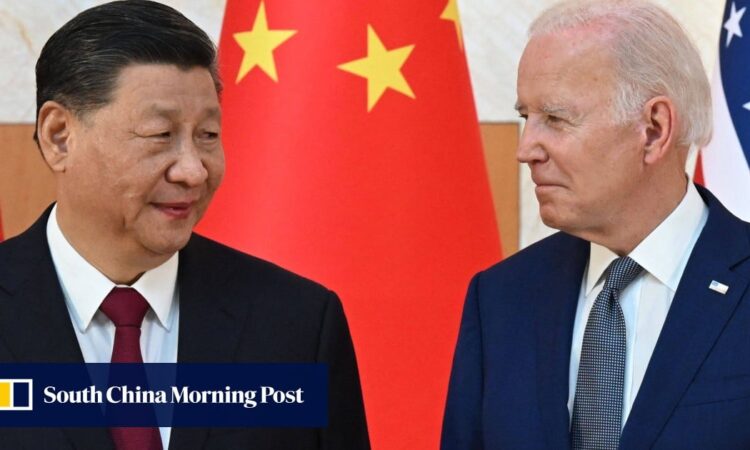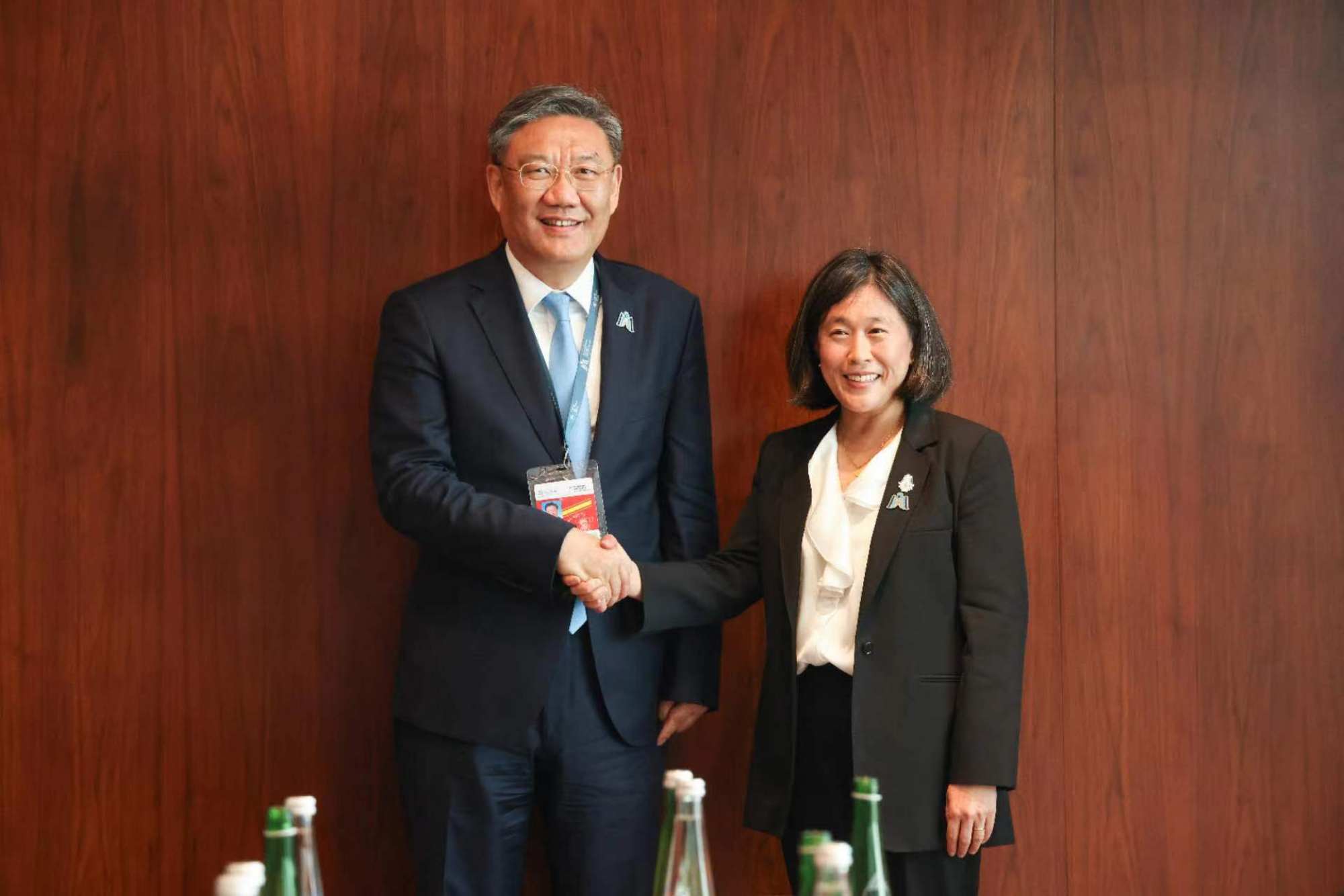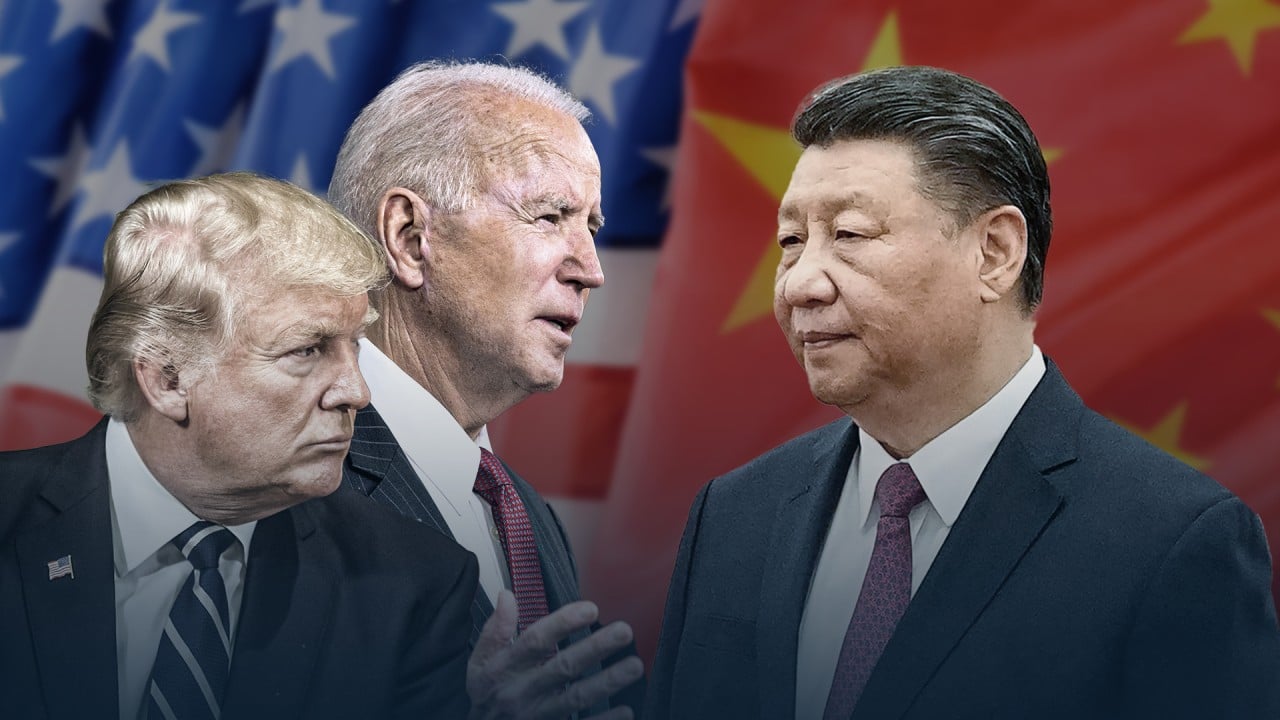
The US accuses China of maintaining a non-market economy that it seeks to use as leverage to distort competitive markets and concentrate supply chains under its control through massive state subsidies.
In recent years, Washington has also enacted several investment laws of its own that dole out billions of dollars in subsidies and tax breaks to repair American infrastructure and reinvigorate domestic manufacturing capacity to reduce dependence on China.
In 2018, Biden’s predecessor Donald Trump imposed tariffs on Chinese imports to address the bilateral trade deficit, accusing Beijing of flooding the US market with Chinese goods.
The Biden administration has mostly kept the Trump-era duties on imports worth US$350 billion intact while allowing individual parties to apply for exclusions. A review of the effectiveness of the policy in boosting domestic manufacturing that began in 2022 is still awaited.
Beijing slams ‘smear tactics’ in US assessment of China’s ‘predatory’ economy
Beijing slams ‘smear tactics’ in US assessment of China’s ‘predatory’ economy
The USTR document on Friday said that it would continue “a targeted tariff exclusions process to ensure that our economic interests are being served, and we will keep open the option of further tariff exclusions processes as warranted”.
The report comes as Biden prepares for an electoral rematch with Trump, who has promised tariffs of 60 per cent or more on Chinese imports and a flat 10 per cent on all other foreign goods if he is re-elected in November.
The US remains one of China’s top trading partners, though in 2023 Mexico became the leading source of goods imported into the US – ahead of China for the first time in 20 years. Still, more than a third of US imports come from Mexico, China and Canada.
Acknowledging that the “complex and competitive” US-China economic and trade ties had global repercussions, the agenda for 2024 includes a renewed focus on assembling a coalition to tackle the challenges posed by Beijing.

“The United States will continue to engage with partners and allies in multiple formats to develop and coordinate effective responses to non-market policies and practices in order to defend US workers and industries, enhance economic security, and strengthen supply chains,” the report said.
Its participating countries include Australia, Brunei, Fiji, India, Indonesia, Japan, Malaysia, New Zealand, the Philippines, Singapore, South Korea, Thailand and Vietnam. Collectively, these countries account for 40 per cent of global gross domestic production.
Disagreements between US, Asian nations complicate IPEF negotiations
Disagreements between US, Asian nations complicate IPEF negotiations
Even though Taipei has stated a wish to broaden the pact, Washington has ruled out any free trade agreements.
“We are creating new and innovative trade arrangements with our allies and partners, enforcing existing ones, and bringing more diverse voices to the table – to drive inclusive economic growth for more people across our society,” Tai said while releasing Biden’s new trade vision on Friday.







